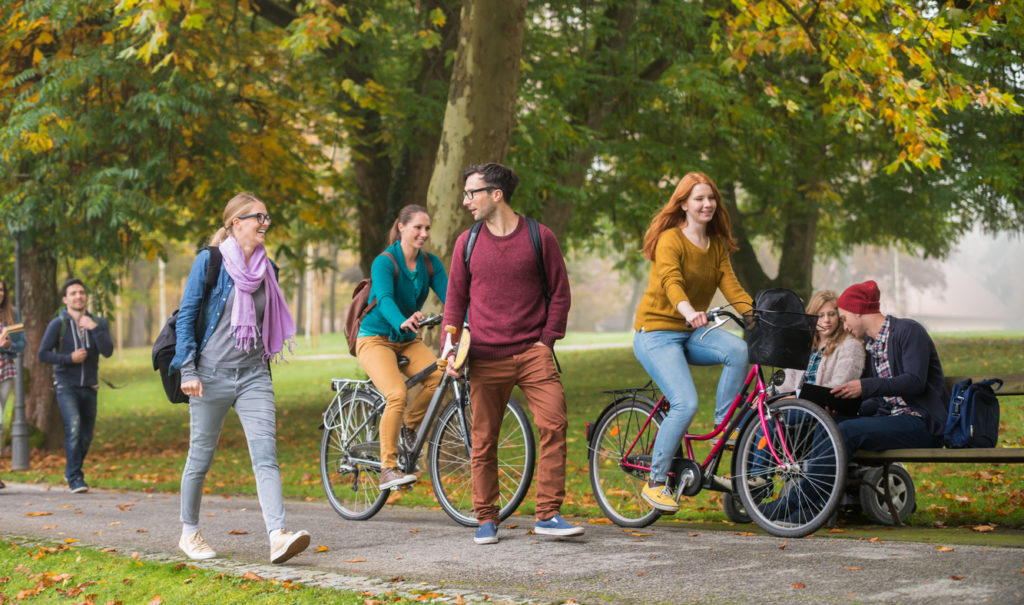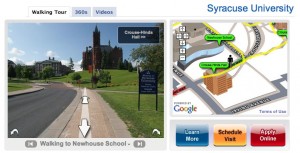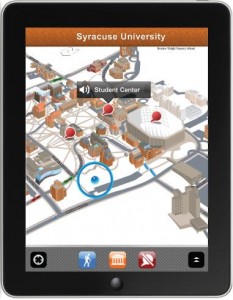Today’s guest blog post is from University Language Services (@CampusCommons) who specializes in helping students make the most of their college experi ence with step-by-step guides on how to choose a school, apply to college, and succeed on campus. ULS also offers college scholarships and information for students who want to study abroad. In addition, ULS has provided the translation of academic transcripts, diplomas and personal documents in more than 150 languages since 1983.
ence with step-by-step guides on how to choose a school, apply to college, and succeed on campus. ULS also offers college scholarships and information for students who want to study abroad. In addition, ULS has provided the translation of academic transcripts, diplomas and personal documents in more than 150 languages since 1983.
Visiting a college campus allows you and your prospective student to get an insider’s perspective of what it’s like to attend that particular school. What are the students like? Do they like the dorms? Where’s the best coffee shop in town?
If the colleges your child is considering are far away, a college visit is even more important. You’ll likely only visit a college once before making the decision about whether to apply.
It’s important to plan for a college visit long before you first step foot on campus. That way you’ll both be able to make an informed decision about where to apply. University Language Services has compiled a list of three most important things to do:
1. Do Your Research
Before getting in that airplane or car, do plenty of research about the college you’re going to visit. You want to be as prepared as possible when arriving on campus so that you and your child can get the most of your experience there.
What academic departments is he or she interested in? Where are they located on campus? What are some places in the neighborhood that you want to check out? Are there walking tours on campus? If so, find out when they are and how to join.
Make a list of things you’d like to accomplish with your child. For example:
* Sit down to talk with an admissions officer.
* Get financial aid forms.
* Encourage your child to sit in on a class.
* Pick up a copy of the student newspaper.
* Eat in the cafeteria.
* Ask students what they love and hate about the college.
* Walk or drive around the area surrounding the college.
2. Plan in Advance
If there are several colleges you and your child would like to visit, it’s important to schedule your visits in advance. Set a date (or even a weekend!) in advance and rest assured knowing you’ve got plenty of time to decide.
If the college is in a major city, don’t limit yourself to the campus. Spend some time exploring! Are there Broadway shows you can go to? Landmarks you’d like to see? In addition to getting to know your child’s (possible!) future school, you’ll get to spend some quality time together.
3. Pack Smart
When visiting a college, make sure you come prepared!
Get a map of the campus and the surrounding area, pack a camera and bring a notebook. Although the experience might seem unforgettable right now, the details might get a little foggy after seeing a few more schools.
A college visit is essential for your child to decide whether or not he or she will be happy attending a particular school. And since you’re probably just as concerned about where your child will be sleeping, eating and studying for the next four years, you’ll want to be a part of that experience.
You can contact us any number of ways:
Twitter: http://www.twitter.com/campuscommons
Facebook: http://www.facebook.com/universitylanguage
Our blog: http://www.universitylanguage/com/blog/






 When you are touring a school for the first time, you will have many opportunities to ask questions. Don’t throw them away by not speaking up; this is your chance to learn the real truth about the campus. Nobody knows the ins-and-outs of a school better than a student tour guide. While giving tours of Syracuse University, I’ve heard some interesting questions, and some that were downright strange. But the worst is when people don’t ask questions at all. Before you visit, brainstorm and prepare yourself. Don’t waste your time asking questions like “what’s the student/faculty ratio” or “how many people apply every year.” The answers to basic questions like these are usually readily available in the school’s online and offline publications. If you are about to tour a potential school, here are the questions you should ask.
When you are touring a school for the first time, you will have many opportunities to ask questions. Don’t throw them away by not speaking up; this is your chance to learn the real truth about the campus. Nobody knows the ins-and-outs of a school better than a student tour guide. While giving tours of Syracuse University, I’ve heard some interesting questions, and some that were downright strange. But the worst is when people don’t ask questions at all. Before you visit, brainstorm and prepare yourself. Don’t waste your time asking questions like “what’s the student/faculty ratio” or “how many people apply every year.” The answers to basic questions like these are usually readily available in the school’s online and offline publications. If you are about to tour a potential school, here are the questions you should ask.